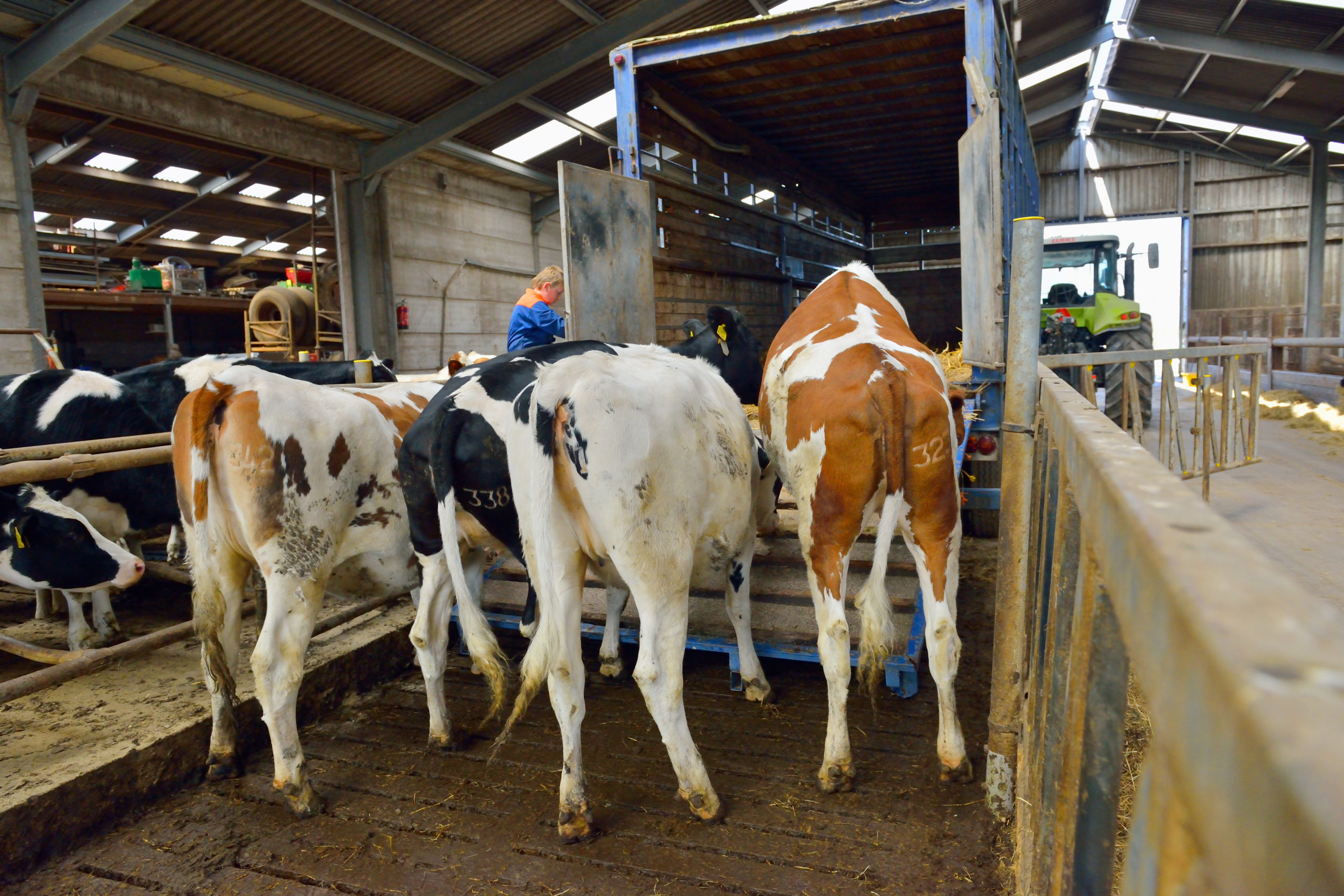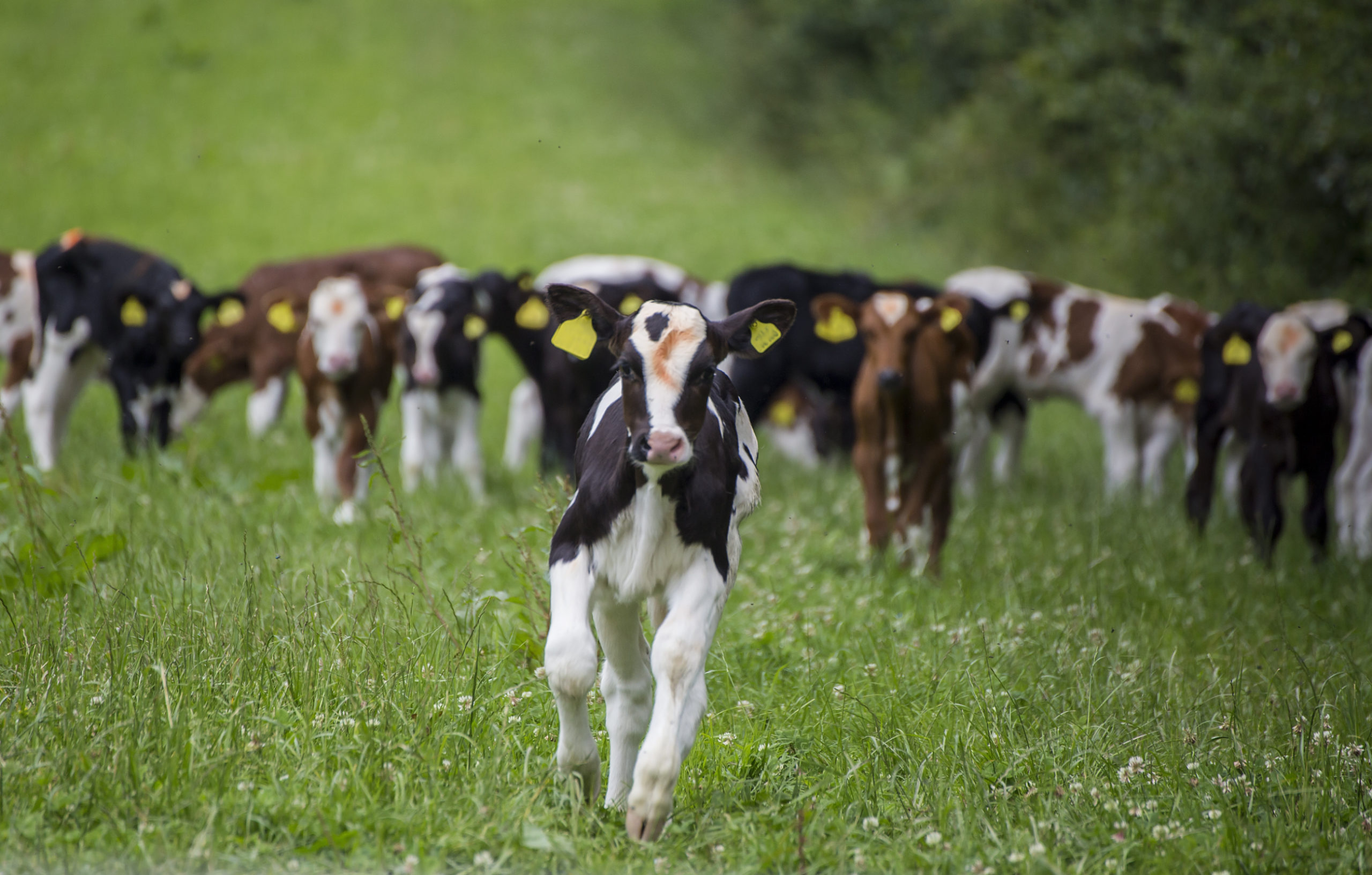Defra introduced a new type of approved TB unit in the High Risk Area (HRA) of England in autumn 2019, called an Approved Finishing Unit (Enhanced) with grazing. Operators of these units can source cattle from single or multiple TB-restricted and officially TB free (OTF) herds for rearing, fattening, and finishing with grazing.

To limit spread of bovine TB, there are limited options for movement of TB-restricted cattle out of TB breakdown herds. TB-restricted cattle can move
- Direct to slaughter
- To slaughter via an approved TB slaughter gathering
- To an Approved Finishing Unit (AFU) either directly or via a TB dedicated sale (orange market) or collection centre
- To a TB Isolation Unit (TBIU)
- To another TB-restricted holding

As part of Defra’s bovine TB control strategy in the HRA, approvals for AFUs with grazing in badger control areas that have completed two seasons of culling are being revoked.
Defra recognises the valuable service that AFUs with grazing provide to owners of TB-restricted herds, particularly for breeds of cattle which require a period of grazing for finishing, or to meet retailer specifications.
That is why it has worked closely with the National Farmers Union (NFU) to develop an alternative approved TB unit to replace AFUs with grazing in badger control areas, preserving outlets for TB-restricted cattle.
Q&A
Approvals for AFUs with grazing in badger control areas that have completed two seasons of culling are being revoked. Defra recognises the valuable service that AFUs with grazing provide to industry and has worked closely with the National Farmers Union (NFU) to develop an alternative approved TB unit to replace AFUs with grazing in badger control areas, preserving outlets for TB-restricted cattle.
AFUEs can only be approved in the High Risk Area (HRA) of England, including in badger control areas.
If you are considering setting up an AFUE, first read the detailed terms and conditions for approval and operation of the unit available on GOV.UK. If you wish to apply, you need to complete an application form and submit it to the Animal & Plant Health Agency (APHA) along with the relevant supporting documents. You will need to work with your private vet at your own cost to develop a written contingency plan outlining actions to take in the event of a TB breakdown or emergency situation in the unit. You will also need to produce a written biosecurity protocol. Template documents are available on GOV.UK, and once completed will need to be approved by APHA as part of your application, and before approval for the unit can be issued. Your application form will be reviewed by APHA and they may need to contact you for additional details at this stage. An APHA vet will then visit the unit to check that the terms and conditions of approval and operation can be met. If the visit is satisfactory then APHA will approve the unit. If the terms and conditions cannot be met then APHA will explain to the applicant the reasons why, and what needs to be done in order for APHA to approve the unit. A unique County Parish Holding (CPH) number will be issued for the AFUE by the Rural Payments Agency (RPA) once the unit has been approved.
Yes, potentially. AFU with grazing operators in badger control areas have three options:
- Re-approval as a housed AFU if conditions can be met.
- Regain officially TB free (OTF) status and revert to a standard cattle enterprise. This involves total depopulation of the unit followed by cleaning & disinfection, and a 60 day period free of cattle before movement restrictions can be lifted.
- Convert to an AFUE if conditions can be met.
AFU with grazing operators in badger control areas wishing to convert their unit into an AFUE must approach APHA at the earliest opportunity before their approval is revoked to allow time for their application to be processed. Operators must be able to demonstrate that their converted unit satisfies the terms and conditions for approval and operation of AFUEs.
- Must be located in the HRA of England.
- Are under permanent TB restrictions (OTF status suspended).
- Must have an individual permanent County Parish Holding (CPH) number.
- Cannot have a temporary CPH (tCPH) or Temporary Land Association (TLA) registered against it. Land/premises registered against an AFUE CPH cannot be associated temporarily through a TLA or as a tCPH to another CPH. AFUEs must not have a BCMS link with any other premises.
- Will usually only be approved on a premises that is OTF at the time of approval, however exceptions may be made for operators of AFUs wishing to convert their unit into an AFUE.
- Approved for cattle only. No other species of livestock are permitted on the unit, including the grazing areas.
- No other cattle must have access to the unit at any time.
- Cattle may only move onto and off the unit under licence issued by APHA.
- No breeding must take place in the unit.
- The unit must not be co-located on premises where another cattle herd exists, including any type of APHA approved TB unit.
- The boundaries of the AFUE must be well defined, discrete, effective and secure.
Detailed terms and conditions can be accessed on GOV.UK.
AFUEs are permitted to source the following cattle under licence
- Cattle less than 60 days of age from TB-restricted holdings, TB-dedicated sales (orange markets) and on-farm herd dispersal sales.
- Cattle less than 12 months of age from housed AFUs provided the calves entered the AFU at less than 60 days old.
- Cattle less than 60 days old from OTF premises.
All licence requests are subject to a veterinary risk assessment by APHA, and any cattle movements considered high risk are refused. AFUEs must source and rear/finish cattle in defined batches. The operator is responsible for deciding what constitutes a batch and must keep appropriate records, ensuring that batches of animals undergo the required TB testing before being allowed out to graze on the unit. There is a maximum filling period of six weeks for each batch of cattle moved onto the unit.
Animals 42 days of age and older moving into the unit must have completed a TB skin test with negative result. Prior to being allowed out to grazing on the unit, animals must complete two consecutive TB skin tests with negative results. The pre-movement test used to move the animal onto the unit (if applicable) can count as one of the two clear tests prior to grazing. Routine TB testing of all cattle in the unit is carried out at 90 day intervals as for existing AFUs with grazing. If TB testing becomes overdue, movement licences for cattle movements onto the unit are revoked and the approval of the AFUE may be revoked. No tracing tests are undertaken in AFUEs.
Animals are only permitted to move off AFUEs under licence to slaughter directly or via
- a housed AFU
- an approved collection centre or slaughter gathering for TB-restricted cattle
- a dedicated sale for TB-restricted cattle (orange market) since 1 July 2021
When moving to slaughter via a housed AFU, an approved collection centre, slaughter gathering or orange market, cattle 42 days old and over must have completed a TB skin test with negative result within 90 days of the movement.
Yes. The biosecurity requirements for AFUEs are much stricter than those for AFUs with grazing. Operators of AFUEs need to work with their private vet at their own cost to develop a written contingency plan in the event of a TB breakdown in the unit, and a written biosecurity protocol. Template documents are available on GOV.UK and once completed need to be approved by APHA as part of the application process, and before approval for the unit can be issued. Full details of the biosecurity requirements are in the terms and conditions for approval and operation of the unit.
Operators of AFUEs must have a written biosecurity protocol and a contingency plan in place developed with their private vet at their own cost and approved by APHA. These documents must be attached to the application form when applying for approval of an AFUE. When developing the biosecurity protocol, the operator must seek bespoke advice in the form of an advisory visit from one of the following:
- The TB Advisory Service.
- An independent advisor specialising in on-farm biosecurity.
- Their private vet.
The advisor must present their bespoke biosecurity advice and recommendations to the operator in writing, for example in the form of a report, and this must be made available to APHA. The operator must implement the recommendations before the AFUE can be approved by APHA. This is in addition to satisfying the terms and conditions for operation of the unit. Once the biosecurity protocol and the contingency plan are approved by APHA, they should be reviewed by the operator annually as a minimum and are discussed at the inspection visits by APHA and at any other time on request.

Useful resources
- All the forms and guidance you need to apply for an AFUE are available on GOV.UK
- TB Advisory Service
- Information about AFUs